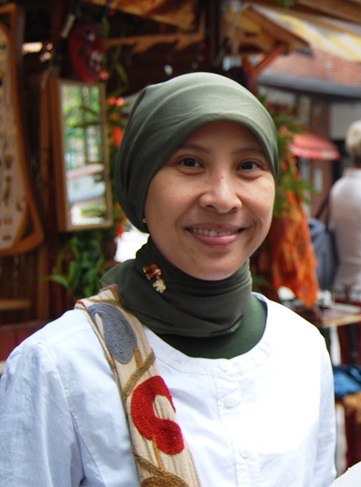Dieser Text ist zur Zeit nur auf Englisch verfügbar...
ZMT Alumna and Ambassador:
Dr. Pribadi Tri Dewi Kusumaningrum, Indonesia

What was your position at ZMT and your memories of Bremen?
After receiving a scholarship from the Indonesian government, I came to ZMT as a PhD student, supervised by Kai Bischof from the Marine Botany group at the University of Bremen and Mirta Teichberg from the Algae and Seagrass Ecology group at ZMT. My research was about the ecophysiological response of macroalgae under environmental stress (nutrient and light).
As a mother of three boys, I worked on my PhD thesis while taking care of my children. They were still very young when we first came to Bremen - 6 and 3 years old, and a baby of 13 months. It was very hard for us in the beginning, especially with time management since I had to do a lot of lab work. I could rarely join the extra activities at ZMT, but everyone was very nice and understanding of my situation. I am also sincerely grateful to ZMT for allowing me to bring my children to the office occasionally when they were on school holidays. It was something they didn’t have to do and I very much appreciate all the support I got during my time in Germany.
There were so many things to remember from Bremen, but the most notable moment was probably when my children pushed the emergency button in the NW2 building at the university because they didn’t have the electronic keys to get in. The bell rang very loud, people came out from their offices, and we became ‘celebrities’ in only 10 minutes…
What happened once you left ZMT?
I went back to Indonesia in 2012 where I began teaching marine ecology, ecotoxicology, aquatic physiology and algology at Padjadjaran University. In 2014, I got promoted to become the head of the laboratory of ecotoxicology. I currently coordinate research collaborations with other institutions, and I look after the “Magister Biology” program, which is a Master of Science degree within the Biology department.
In 2015, I became a member of the Environmental Stress Biology and Bioremediation Research Group, focusing on environmental stress biology, ecotoxicology, ecological alteration and bioremediation in both freshwater and marine ecosystems.




